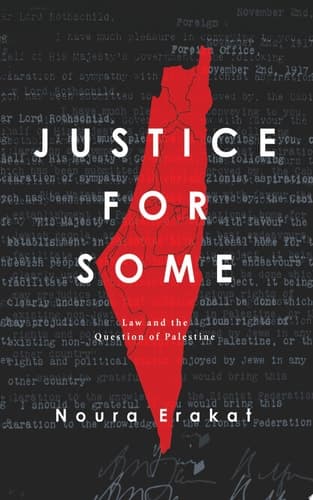
Justice for Some: Law and the Question of Palestine
by Noura Erakat
Published 2019 by Stanford University Press
354 pages
About this book:
Justice in the Question of Palestine is often framed as a question of law. Yet none of the Israel-Palestinian conflict's most vexing challenges have been resolved by judicial intervention. Occupation law has failed to stem Israel's settlement enterprise. Laws of war have permitted killing and destruction during Israel's military offensives in the Gaza Strip. The Oslo Accord's two-state solution is now dead letter. Justice for Some offers a new approach to understanding the Palestinian struggle for freedom, told through the power and control of international law. Focusing on key junctures—from the Balfour Declaration in 1917 to present-day wars in Gaza—Noura Erakat shows how the strategic deployment of law has shaped current conditions. Over the past century, the law has done more to advance Israel's interests than the Palestinians'. But, Erakat argues, this outcome was never inevitable. Law is politics, and its meaning and application depend on the political intervention of states and people alike. Within the law, change is possible. International law can serve the cause of freedom when it is mobilized in support of a political movement. Presenting the promise and risk of international law, Justice for Some calls for renewed action and attention to the Question of Palestine.
Recommended in:
- Ta-Nehisi Coates on Israel: ‘I Felt Lied To.’ (Oct 11, 2024) with Ta-Nehisi Coates
- The Disastrous Relationship Between Israel, Palestinians and the U.N. (May 17, 2024) with Aslı Ü. Bâli
Recommended with:

Study Guide: The Case for Reparations by Ta-Nehisi Coates (SuperSummary)
SuperSummary

The Necessity of Exile
Shaul Magid

Our American Israel: The Story of an Entangled Alliance
Amy Kaplan

The Unspoken Alliance: Israel's Secret Relationship with Apartheid South Africa
Sasha Polakow-Suransky

Imperialism, Sovereignty and the Making of International Law (Cambridge Studies in International and Comparative Law, Series Number 37)
Antony Anghie

Worldmaking after Empire: The Rise and Fall of Self-Determination
Adom Getachew